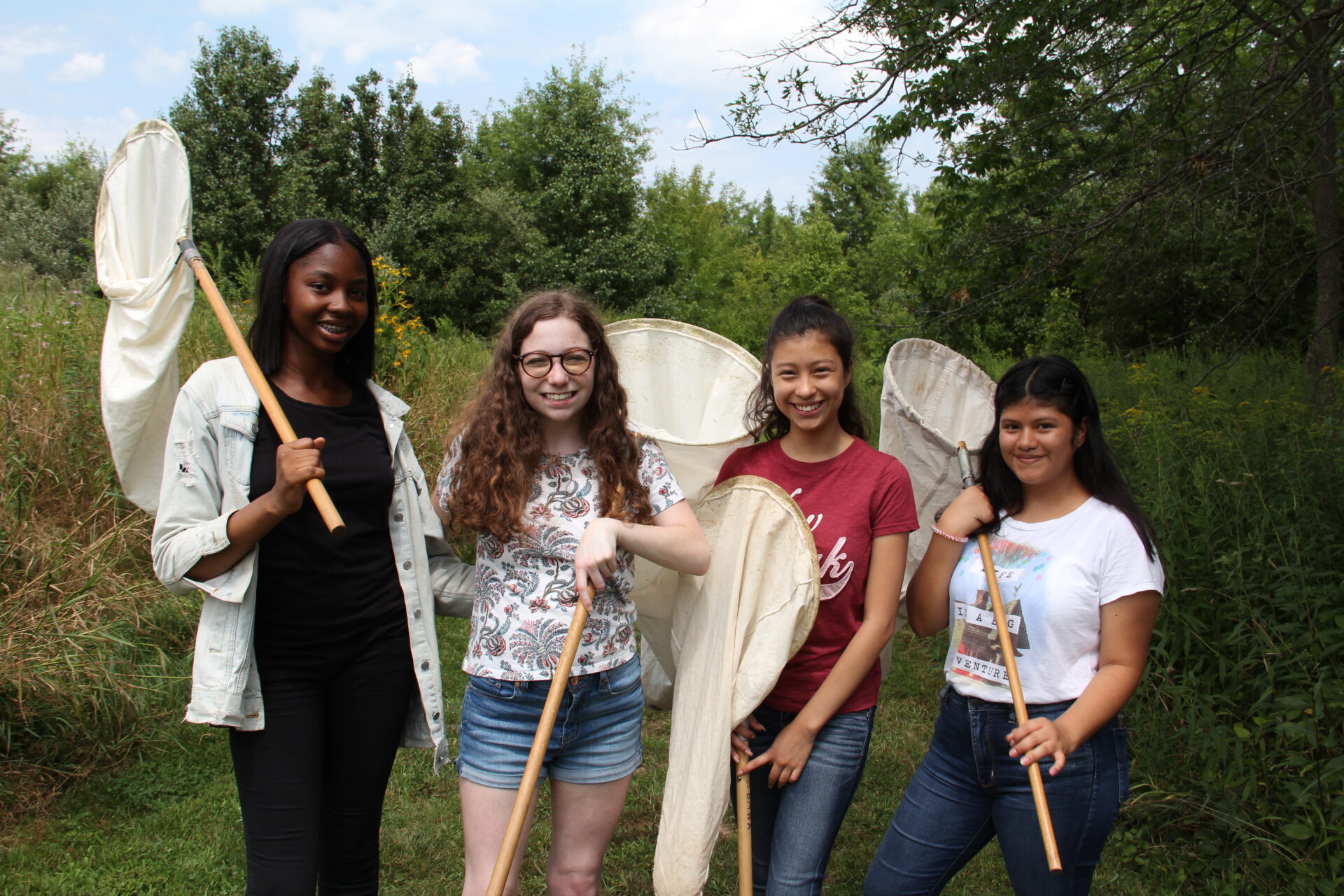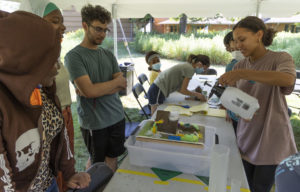Week 1 -July 7-11
Forests and Water Academy $525
Forests are vital for clean water, soil, wildlife, food, medicine, health and inspiration. Spend a week studying trees and the remarkable products and ecosystem services they provide. We will explore the health of local woodlands and discover how climate change, development, and invasive species are changing the face of our forests.
Each day we will take time to reflect on the beauty and majesty of trees while working toward preserving these critical resources in the face of challenges.
- Learn how forests are crucial to watershed health, clean water, climate and biodiversity.
- Meet The Ridgeview Turtles, a group of young scientists led by tropical forest ecologist Patricia Shanley, PhD.
- Visit preserved woodlands and see what local communities and youth can do to ensure their health.
- Explore the process of succession, how forests change over time, and what you can do to help vulnerable woodlands.
Week 2 -July 14-18
Stream Science $525
Lead your own investigation to determine the health of our streams! We will study water quality indicators and perform tests in this hands-on session. Explore the nearby Beden Brook in depth, learn how freshwater scientists determine watershed health, identify potential sources of pollution, and propose potential solutions to water quality problems.
Learn from Steve Tuorto, PhD, Director of Science at the Watershed Institute and discover how his team works.
Work with Davis Bush, StreamWatch Schools Coordinator and become part of a statewide study of stream health.
Practice the scientific methods of assessing water quality.
Identify and understand potential threats to the health of the stream.
Week 3 -July 21-25 $525
Wetlands Academy
Wetlands serve to clean, store and protect water. Learn what factors make a wetland and how NJ wetlands are protected. Conduct field research to delineate a wetland area and study the structure and function of these vital natural features.
Learn from experts in the field of wetland science.
Focus on hydrophytic or water loving plants that have adapted to growing in wetland areas
Study wetland soils and how to determine if they have hydric /anaerobic qualities
Look at the hydrologic features of freshwater wetlands and how we can help protect these unique habitats
Week 4 -July 28-Aug 1 $
Water and Climate with Princeton’s High Meadows Environmental Institute $575
Climate change is the biggest challenge of our time. Water plays a vital role as both an indicator of climate change and a significant medium through which its effects are felt. Join researchers from Princeton University’s Civil and Environmental Engineering Department and High Meadows Environmental Institute, to explore ongoing work to better understand and address the interconnected challenges of climate change and water management for a sustainable future.
- Meet experts in the field and learn first-hand about their cutting-edge research.
- Visit laboratories at Princeton University where scientists are conducting climate and water research.
- Connect with undergraduate students to gain insights into their college experiences and what life on campus is really like.





